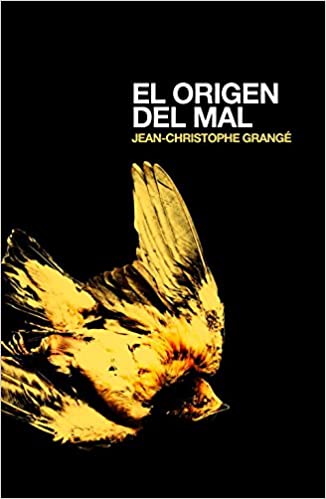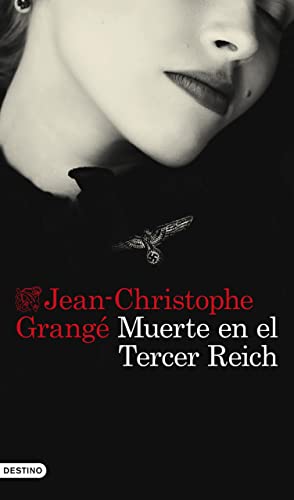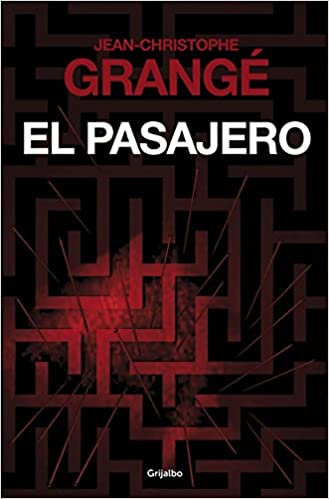Some writers of crime novels have become the last beacons in an ocean full of crime thrillers in full drunkenness of scientific investigations or private label serial killers. Novels like churros that are more gimmicky in the face of an easily scared reader than offer a vision of the most sinister human souls with even anthropological interest.
Jean Christophe Grangé belongs to that select group that dignifies the noir genre as something more than pure morbid entertainment. A host of current authors where they would also be Victor of the Tree, Pierre Lemaitre o Markaris (curiously all Europeans…). Each one of these, each one with their plot bias more tending towards the police, the psychological or the sociological, make noir a space for reading with clear reflections in the chiaroscuro mirror of the world.
And although Grangé is not the most prodigal creator of stories, he presents us, when he enters his creative vein, juicy plots to the point of gargantuan. Because from time to time he wants to succumb to a succulent menu at the table of criminals capable of approaching you in the middle of the after-dinner to tell you his reasons for killing and invite you to reveal his secrets.
Allegories aside, Grangé's fictions can be more or less bloody. The question is to shape it all as a strangely empathetic story towards the criminal. Because spotting the murderer doing his misdeeds without approaching his motives, and waiting for the laboratory on duty to rule guilt and modus operandi, he is already losing his grace...
Top 3 recommended novels by Jean Christophe Grangé
Death in the Third Reich
We start with a historical thriller. And despite the fact that the scenario sounds hackneyed to us, the way of approaching the plot has nothing recurring... Nazism is today the paradigm of the worst of human follies. But beyond the world hovering in its shadows, there are characters who know how to move like dark chameleons capable of the most horrifying mutations.
Berlin, on the eve of the Second World War. The happy-go-lucky wives of the Nazi regime's top officials gather to drink champagne at the Hotel Adlon. When they start turning up gruesomely murdered on the banks of the River Spree or near the lakes, the police put the case in the hands of three unique individuals: Franz Beewen, a brutal and ruthless Gestapo policeman; Mina von Hassel, a prestigious psychiatrist, and Simon Kraus, the psychoanalyst who treated the victims.
With everything against them, this group must follow in the Monster's footsteps and uncover an unsuspected truth. Because evil often hides behind the most unexpected of facades.
The passenger
"I am not a murderer." It is the handwritten note that Anaïs Chatelet found in her office from the Bordeaux judicial police. Now nothing adds up in the investigation. A few days earlier, at the train station, the naked corpse of a young man with the head of a bull embedded in it had been found. A macabre recreation of the Minotaur.
Shortly after, Anaïs met with the psychiatrist Mathias Freire to ask him about one of his hospital patients. A mysterious man whom Mathias had diagnosed as "dissociative fugue": a type of amnesia in which the sufferer creates another identity for himself.
From that moment Anaïs and Mathias are immersed in a labyrinthine case. They only know that someone has been killing for a long time, each time copying a myth from Antiquity. The key to finding him is in the mind of a man who has forgotten who he was.
The origin of evil
With this title, that the own Joel dicker used as an enigmatic work from which to take off with his series by the writer Harry Quebert, he points to that germ that every writer of crime novels should consider as the big bang. The temptation of the devil, the essential part of the balance between morality and the ominous that every human being adjusts so as not to indulge in violence and revenge as arguments. It's just that some don't apply filters and end up blossoming from that germination towards the human as a monstrous creation. And the germ is always in childhood and its naive appearance.
The director of a children's choir is found dead in a church under strange circumstances. The only clue next to his body is the footprint of a child. They are children. They have the purity of the most perfect diamonds. No shadows. Without cuts. No flaws. But its purity is the same as that of Evil.
The corpse of the director of a children's choir has appeared under strange circumstances and no one is capable of determining the causes of his death. The only clue the police have is a footprint found near the body. It is the trace of a small, very small footprint... An investigation full of disturbing clues that plunges into the darkest side of the human mind, the one that enjoys pain.



